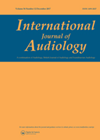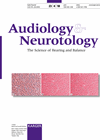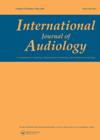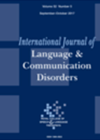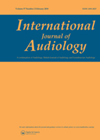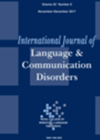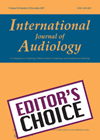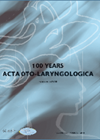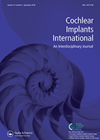
Journal Reviews
Social representation of hearing loss in different countries
The social representation of different phenomena has generated strong interest among researchers recently. The social representation of ‘hearing loss’ is different in different countries such as India, Iran, Portugal, and the UK, as was evidenced in previous research. This study...
Virtual human speaker
The aim of the discussed study was to develop and evaluate a 3D virtual speaker that could use pre-recorded audio-material and possibly be used for audio-visual speech testing in the future. The authors developed the terminal-analogue method that allows to...
Is there a role for hyperbaric treatment in sudden hearing loss?
Sudden sensorineural hearing loss is a common presentation to ENT departments with a significant difference in management both at a local and regional level. The authors seek to clarify the role of hyperbaric oxygen therapy in combination with oral and...
Cognition outcomes after cochlear implantation – is there an improvement?
Older adults with a severe to profound hearing loss are more at risk of cognitive decline than adults of a similar age with milder losses or normal hearing. This poses challenges, not only in the assessment process, but also for...
Hearing loss and social support
The aim of this above study was to investigate how perceived social support and the hearing loss handicap may be influenced by residency and demographics. A total of 106 participants were tested, 71 of them with hearing loss. Thirty of...
Strategies to improve early development of vocabulary post-cochlear implantation
Cochlear Implantation (CI) is now the standard of care for rehabilitation of children with bilateral severe to profound sensorineural hearing loss. It improves the children’s linguistic input and helps them to develop language. The literature published so far has shown...
Internet-based aural rehabilitation (IAR)
Rapid information technology development allows use of the internet in several areas. It is therefore not surprising that online rehabilitation programmes attract a large interest of researchers worldwide. This study aimed to analyse what participants’ experiences of IAR are. The...
Speech perception in the ageing population
Speech perception can present a challenge as we grow older. One of the factors responsible is, of course, hearing loss. Now research indicates that other non-auditory factors like cognitive decline may also contribute to difficulties in understanding speech. The authors...
Attitudes towards leisure noise
Noise is a very common reason for hearing loss. The question is whether young adults realise the danger of developing a noise related hearing loss. The aim of this study was to evaluate the attitude towards leisure noise and noise...
Does stress and anxiety worsen idiopathic sudden hearing loss outcomes?
There have been suggestions that the natural course of the idiopathic sudden sensorineural hearing loss (ISSNHL) is not affected by intensive therapy. There is speculation as to whether unknown factors affect the treatment prognosis. This is a retrospective study of...
Hearing loss and QOL
This article evaluates the impact of hearing loss and its rehabilitation on the quality of life (QoL) of adults. The authors suggest that the currently used scale, Aphab, is long, complicated and does not take into account minor changes. The...
Milestones profile for children with cochlear implant
Over the last eight years, Nottingham auditory implant programme have developed and validated a profile of auditory milestones for use with children receiving bilateral cochlear implants under the age of two years. The structure of the Nottingham Auditory Milestones profile...

